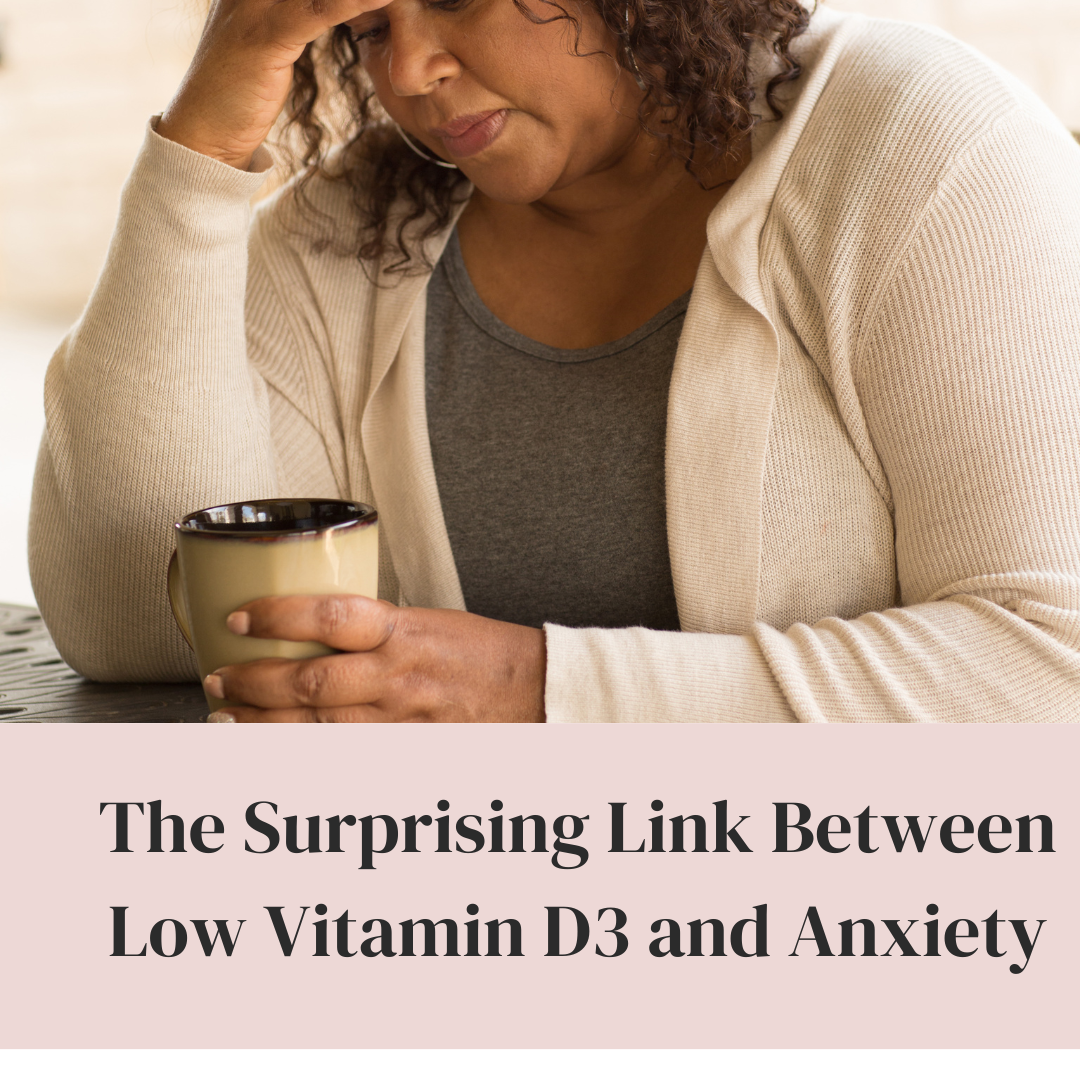
Ever feel your chest tighten for no reason? Your mind races, heart pounds—then you worry it’s all in your head. You think: “Is this just stress? Anxiety? Or is something else off?” That fear? Totally valid. It’s real. It hurts. And sometimes, the thing you’re missing isn’t therapy or meditation—it’s something as simple as vitamin D3.
Why Vitamin D3 Isn’t Just About Sunlight
Everybody knows D3 builds bones. But here’s what most people miss: it acts like a hormone. It interacts with receptors all over our body—even in the brain. That means when D3 levels dip, your mood and anxiety levels can follow.
D3 helps regulate serotonin—the brain’s “feel-good” neurotransmitter. Less D3? Less serotonin. You feel snappy. Nervous. Hyper-alert. That basement anxiety you can’t explain? It might be missing sunshine.
A Must Read: Winter Blues or D3 Deficiency? Here’s How to Tell the Difference
The Feeling: Anxiety You Can’t Quit
You’ve Googled every reason: caffeine intake. Stress. Genetically wired. But none of it – none – fully explains why it hits when it hits.
Maybe you lie in bed at night thinking, “Why can’t I turn this off?”
Or you wake groggy, heart already racing before your feet touch the floor.
You’ve been told to breathe, to calm down, to try harder. But inside there’s that whisper: “What if something inside me is actually missing?” Trust me. That whisper is worth listening to.
The Research: D3 Levels & Anxiety Connection
Science backs this up:
- Studies show adults with anxiety often have lower D3 levels than those without.
- A 2017 review of 14 trials found supplementing D3 significantly reduced anxiety symptoms.
- D3 supports serotonin production—and serotonin’s key to managing anxiety.
It’s not that D3 causes anxiety—but low levels can make it much harder to manage. You’re not weak. Your body is just missing one piece of the puzzle.
What Low D3 Anxiety Feels Like
Imagine a thermostat stuck too high. You’re anxious without reason. You lock doors, rewind conversations, spin on “what-if” loops. Add in:
- Waking up with dread
- Afternoon heart palpitations
- Racing thoughts at 3 AM
- Feeling ungrounded or disconnected
That’s your brain in scramble mode—and vitamin D3 could be the signal your brain needs to dial down the freak-out.
Is It Low D3 or SAD (Seasonal Affective Disorder)?
They overlap. But here’s a quick check:
- Winter anxiety that fades in spring = likely seasonal
- Low-level, everyday anxiety = could be chronic low D3
- Flu-like cognitive fog, muscle aches, low mood = both
- Recurrent infections, brain fog, fatigue = sign of low D3
Want clarity? Test. Don’t guess.
Editors Pick: Best Vitamin D supplement
What Happens When You Fix It
Here’s the real test: how you feel after correcting D3 levels.
- You suddenly breathe easier
- You don’t spiral before bed
- Your mind stops overthinking everything
- That gnawing dread isn’t centerstage every evening
It isn’t therapy—or healing—on its own. But it is like removing a heavy weight you didn’t know was chained to you.
How to Get Started (Without Overwhelm)
- Test 25(OH)D—seriously, test it.
- If you’re below 30 ng/mL, supplement 2,000–5,000 IU/day with a fat-containing meal.
- Get 15–30 min of midday sun, a few times a week—no sunscreen for that window.
- Eat D-rich foods: salmon, and mushrooms
- Retest in 3–4 months.
- Track not just anxiety levels, but sleep quality, digestion, energy – it’s all connected.
When Anxiety Is Still Heavy
If you’ve corrected D3 levels but anxiety lingers, that’s okay. It means you might need more help—therapy, stress work, lifestyle adjustments. But something crucial would have shifted. You’d feel less stuck.
Low D3 isn’t a cure—but for many, it’s the starting point. Like finding a door you didn’t know was locked.
Signs to watch out for
| Sign of Anxiety | Could Be Low D3? |
| Constant worry | ✅ |
| Racing heart | ✅ |
| Night ruminations | ✅ |
| Seasonal low mood | Sometimes |
| Physical fatigue | ✅ |
You Deserve Relief. Start with the Basics.
This isn’t about labeling or overthinking. It’s about feeling better. If anxiety’s in the background (or foreground) of your life—and meds or therapy haven’t fixed it—start simple. Test your D3. Fix your biology. Notice what shifts.
You deserve days without panic. Nights without racing thoughts. A life where your body supports you—not fights you every minute.
Because sometimes the surprising answer? It’s just missing sunshine.







